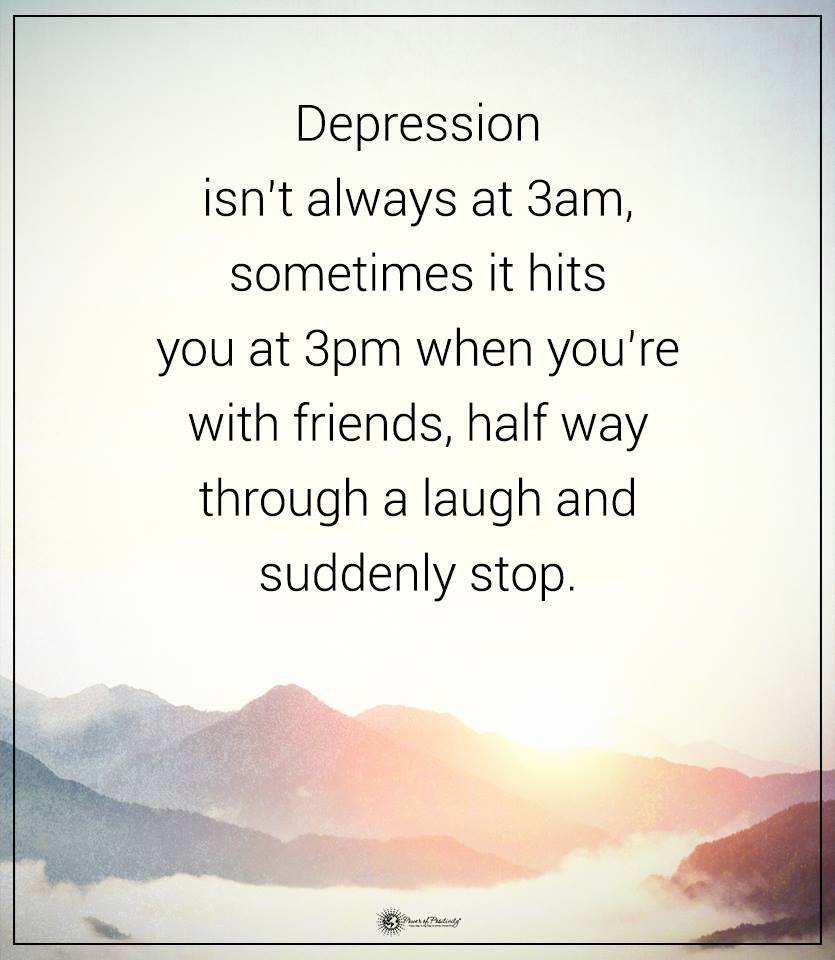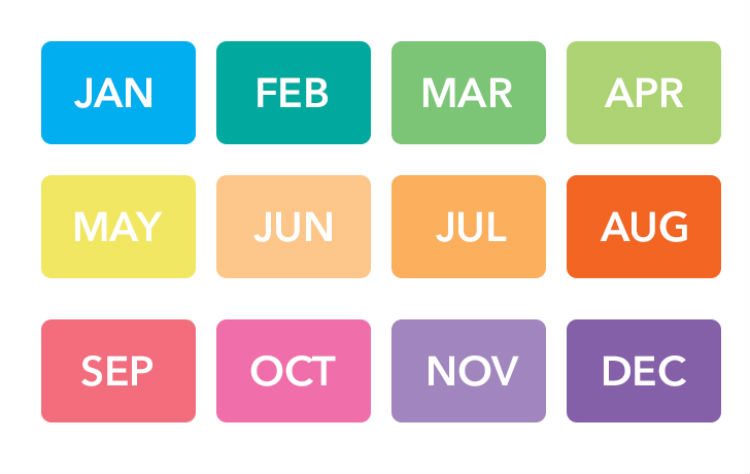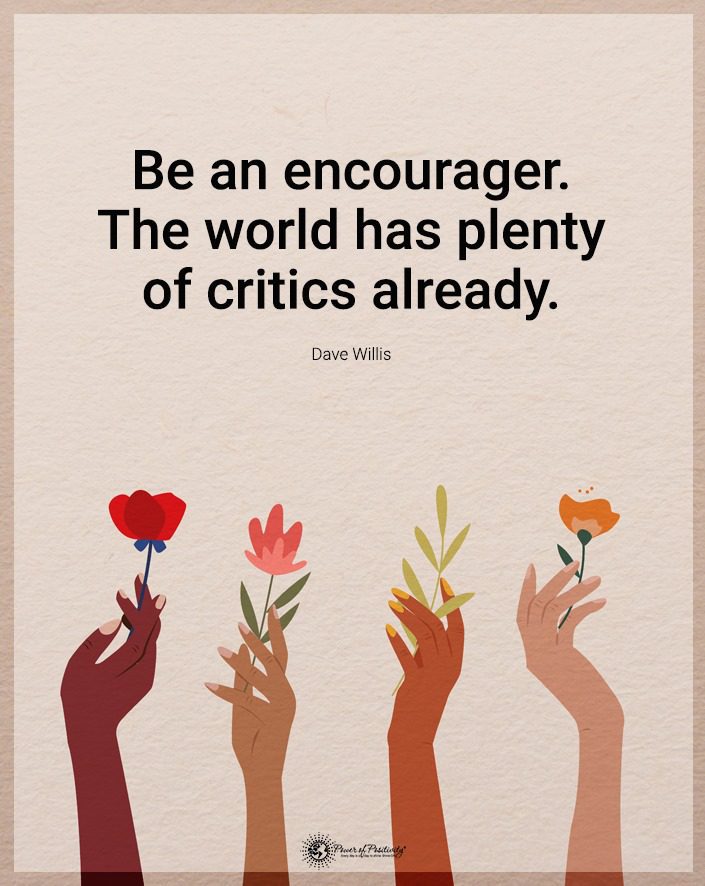First of all, sorry that you are going through this and thank you for stumbling across this article about depression. Let us help you so that we can work together to help you feel better. You are an incredibly special person, incredibly cherished by your loved ones and our community, incredibly strong and brave to reach out. Your peace and happiness are your birthright and you are not alone, even if it feels that way. You are incredible, you are special, you are amazing. You truly are. If this humble article can help just one person – you, it will have succeeded greatly.
14 Things to Remember If You Struggle with Depression
Let us go through this list together. We are thinking of you every step of the way.
1. It all gets better
Even if you feel at rock bottom now, whatever life throws at you, you survive. Your wounds should be seen as a way to remind yourself that you did survive, after all, you are still alive, right? The perfect medicine for you from the Power of Positivity clinic is listening to Stayin’ Alive by The Bee Gees. Dosage: whenever you are feeling down. “Whether you’re a brother or whether you’re a mother you’re stayin’ alive, stayin’ alive!”

2. You are far more than depression
This ailment does not define you as a person. Sure, it can alter your moods but depression is not you and you are definitely not depression. You may have seen Prince Ea on social media. He has done videos on YouTube about a plethora of topics. In one of his latest videos, he talks about depression and, using an analogy of the sky, he says: “YOU are the sky. Depression, frustration, sadness, they are passing clouds. Some are black, some are white. Sometimes they pepper the sky, and sometimes they fill the sky but they always come and go.” Using the MBCT technique mentioned previously, Penman agrees: “The idea is that you come to realise that thoughts come and go of their own accord and that your conscious self is distinct from your thoughts.” Be a warm, sunny day with no clouds!
3. Overthinking is normal
Think about it (not too much, obviously); overthinking is normal in depression, yet it causes problems left, right and center. “Not only does overthinking become a pattern with practice, but the thoughts tend to get darker over time. Negative thoughts about a specific experience can generalize or expand to color other areas of our life, causing us to scrutinize still more troublesome memories—amplifying the negativity,” states Jacqueline Marshall of PsyWeb. She adds: “Overthinking often encompasses our relationships, body image, family issues, career, and finances. It can also center on recent events such as an argument with a co-worker or friend. The things we ruminate about may be real problems that beg for solutions, but overthinking has never solved anything.”
4. Keep doing the things you love doing
Lack of motivation causes procrastination in the nation. You feel like you are not able to do anything, but completing the smallest of tasks can set you up on the road to recovery. Even more so if it is something for which you have a passion. It all comes from within, so find it in you to be the real you. Also, keep your support system tight, whoever that may be. Even if they do not fully understand, they will still help you in any way they can. Keep everyone communicating so that they can help you in the correct manner.
5. Get help
We want to help you by pointing you in the right direction, and that is towards being proactive in your recovery by way of meditation. Science backs this up with, according to Danny Penman, PhD, of Psychology Today, “a long lasting solution to the spiral of sadness”. The suggested course of action is using mindfulness-based cognitive therapy (MBCT), which “marries Eastern meditation with Western cognitive therapy”. Penman adds: “The MBCT technique is simple, and revolves around “mindfulness meditation“. In this, you sit with your eyes closed and focus on your breathing. Concentrating on the rhythm of the breath helps produce a feeling of detachment.” This is followed “by gentle question-and-answer sessions modeled on those in cognitive therapy”.

6. You are not alone
You aren’t alone in your fight against depression. There are people around you who love you and are with you in the battle. They may not totally understand what you’re going through, but they love you. These people want to help you any way they can. Even at your lowest, you’re important to them. You are a good person who is worth not feeling alone in this battle. So, never give in to the lie that you are alone.
7. You have more control than you feel you do
Depression sucks. It feels overpowering, but you can control each day’s decisions. Even the smallest control is still some level of control. Depression may try to tell you things, but you don’t need to believe it. Remember, you drive your life, not depression. Even if you make small decisions about what to wear, what to eat, and where to go, this gives you control over your life. You can get together with people and talk to them. Don’t believe that you are out of control and there’s nothing you can do. You drive your life, not depression.
8. Don’t do things to make others happy
When you struggle with depression, your friends and family will have a lot of opinions about what you should and shouldn’t do. Suddenly, everyone’s an expert on the subject of depression. Even though these folks’ hearts are probably in the right place, you don’t need to feel pressure to do what they want. Most people don’t understand what it’s like to be depressed. The most important thing is that you are getting the help you need from professional counselors or whoever you’re getting help from, and following their advice. Take your time, and if necessary, ask people to please stop giving you advice.
9. God hears your prayers
Prayer is powerful. Don’t underestimate the power of your prayers. Researchers found that one-on-one prayer intervention improved depression and anxiety. It also increased spiritual experiences and feelings of optimism in people suffering from depression. Whether or not you’re religious, it’s worth finding a praying friend to pray for you. And it’s worth pouring out your heart to God. You never know, he might just surprise you with answers.
10. Allow others to love you
When you’re struggling with depression, it’s hard to let people into your world. It may be hard for you to trust people because you’ve been hurt in the past. But it’s worth it to reach out and allow people into your life. There are probably trustworthy people who want to love you and help you. They may be cringeworthy, but that’s okay. Imperfect people may be your best supporters and friends during your tough times. Family members trusted friends, and even your old gray grandma may be exactly who you need to love you and make you feel better about yourself and the world around you.
11. Write about your feelings, it’ll help you
There is something special about putting down your feelings on paper. Whether you write a story, a poem, or just a few lines about how you’re doing, it’ll help you feel better. Studies show that people who struggle with depression decrease their symptoms when they express themselves through writing. You can write in a paper journal or an online journal. Wherever you decide to write, it’ll be a therapeutic exercise and allow you a free expression of how you’re feeling and what’s on your mind. So, start writing today.
12. Never give up
Keep fighting, no matter what you’re facing. It’s not time to lie down and give up. No matter how scared you are, or how much you feel like quitting. You may feel you’re in the fight of your life today, but tomorrow will be better. Today, try to take care of yourself with these things:
- Try to do a little physical activity outside, preferably
- Try to eat regular, healthy meals
- Do something, even if it’s a little thing. Take out the trash or load the dishwasher. Little activities matter.
- Go to bed on time
- Try to connect with someone else. Talk to someone.
- Don’t make any big decisions until you’re feeling better
- Don’t drink alcohol, smoke, or take drugs. They will only make you feel worse.
13. Celebrate your small victories
Even small victories are worth celebrating. Getting out of bed is a victory. Brushing your hair, getting dressed, and going downstairs are all victories. Take note, you’re still in the battle, and you’re killing it. Give yourself a pat on the back. These small victories are huge. Congratulations!
14. Feeling are facts
Even though your feelings are legitimate, they’re not necessarily factual. It’s easy to confuse the two. But facts can be proven and validated. Feelings, on the other hand, can change depending upon the circumstances. It doesn’t mean your feelings are worthless, but it’s important to not take them seriously. Don’t make decisions based on your feelings. Try to get the facts, then decide if you should make a decision.

Final Thoughts on Caring for Yourself During Depression
Depression is an uphill battle for many people. Although it can be debilitating at times, there are ways you can take care of yourself during depression. Remember that you’re not alone. There are people who love and want to walk this journey with you. They may not understand what it’s like to go through depression, but it’s good to have a shoulder to lean on when you’re having an especially rough day. There are many things you can do to exert your control over depression, such as writing down your thoughts, praying, getting some exercise, eating well, and getting together with other people. Even if you don’t feel like doing these things, try to do one or two of them. Even small victories are still victories and worth celebrating. Most of all, you’re worth celebrating and your life is valuable. So, hang in there and don’t give up in the battle.









